Key takeaways
- Community life coaching emphasizes listening, collaboration, and creating connections, fostering growth within groups.
- Sports clinics build belonging and confidence, serving as a platform for breaking down barriers and promoting unity.
- Effective planning involves understanding community needs, clear communication, and creating an inclusive atmosphere for all participants.
- Flexibility and patience are essential when organizing events, as adapting to diverse needs enhances participant engagement and satisfaction.

Understanding community life coaching principles
Community life coaching, in my experience, is all about fostering genuine connections within a group. Have you ever noticed how small shifts in encouragement or perspective can ripple through an entire community? That’s the power of coaching rooted in understanding and empathy.
At its core, this approach values listening more than telling. I’ve found that when people feel truly heard, their willingness to grow and collaborate skyrockets. Isn’t it amazing how much potential lies just beneath the surface when someone takes the time to really listen?
What strikes me most is how coaching emphasizes collaboration over control. Rather than directing every step, it encourages partners to explore solutions together. This balance creates a sense of ownership and pride that’s hard to achieve otherwise. Have you witnessed how teamwork can transform even the toughest challenges?
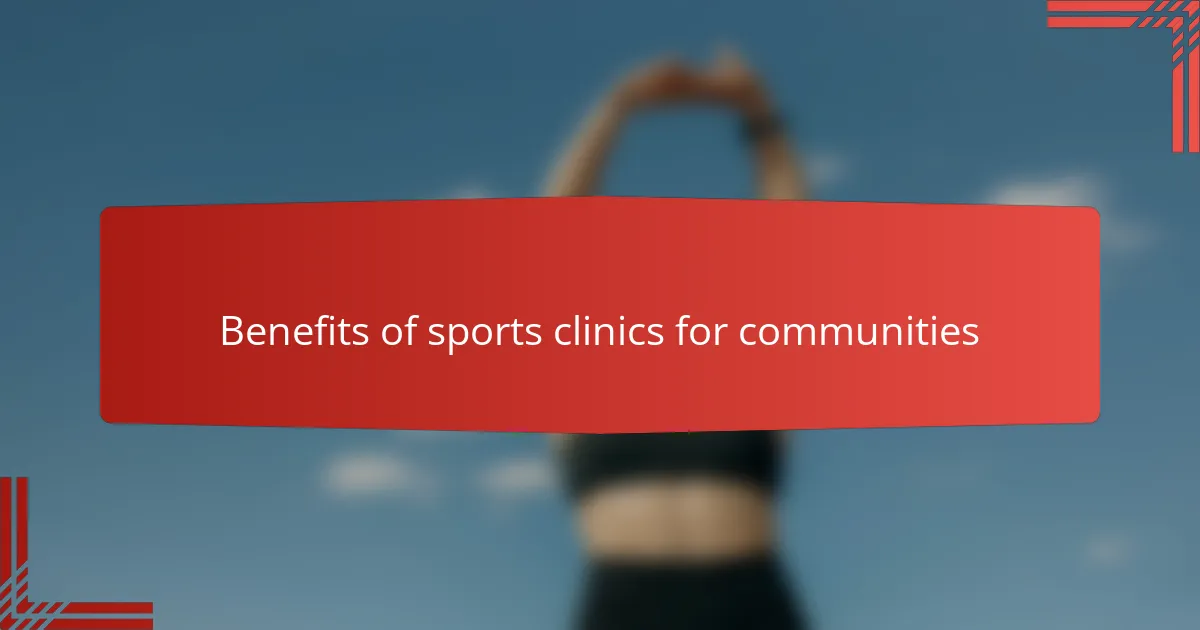
Benefits of sports clinics for communities
What I’ve noticed is that sports clinics do more than teach skills—they build a sense of belonging. When people come together on the field, there’s an unspoken bond that starts to form. Have you ever felt how sharing a common goal, like improving at a sport, can make even strangers feel like teammates?
In one clinic I helped organize, I saw kids and adults alike gaining confidence, not just in their athletic abilities but in their own voices. That confidence often spills over into other parts of life, creating a ripple effect that strengthens the entire community. It’s rewarding to witness that shift firsthand.
Sports clinics also offer a safe space where differences fade, and collaboration takes center stage. When everyone is focused on learning and growing together, barriers break down naturally. Isn’t that the kind of unity every community needs to thrive?
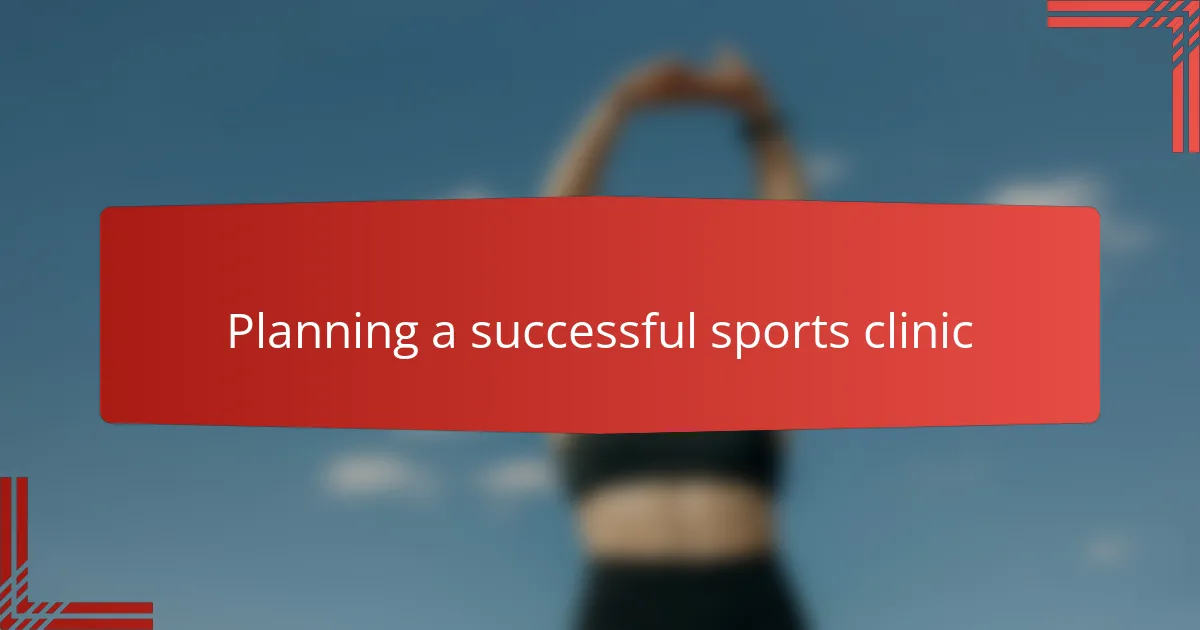
Planning a successful sports clinic
Planning a successful sports clinic starts with understanding the unique needs of your community. When I organized my first clinic in Atlanta, I took the time to talk with local coaches and participants beforehand, which helped me tailor activities that truly resonated. Have you ever tried jumping right into planning without asking what people actually want? It rarely works out as well as you hope.
Logistics can feel overwhelming—booking a venue, arranging equipment, and coordinating schedules—but from my experience, clear communication makes all the difference. Sending timely reminders and having a detailed checklist helped me avoid last-minute chaos and kept everyone on the same page. Doesn’t it feel so much better when everything runs smoothly because of a little upfront effort?
The real magic lies in creating an atmosphere where everyone feels welcome and motivated. I remember one clinic where a shy teenager surprised us all by stepping up and leading a warm-up. That moment reinforced for me how important it is to plan not just the drills, but also the encouragement and support that empower participants. How often do we forget that emotional readiness is as vital as physical preparation?
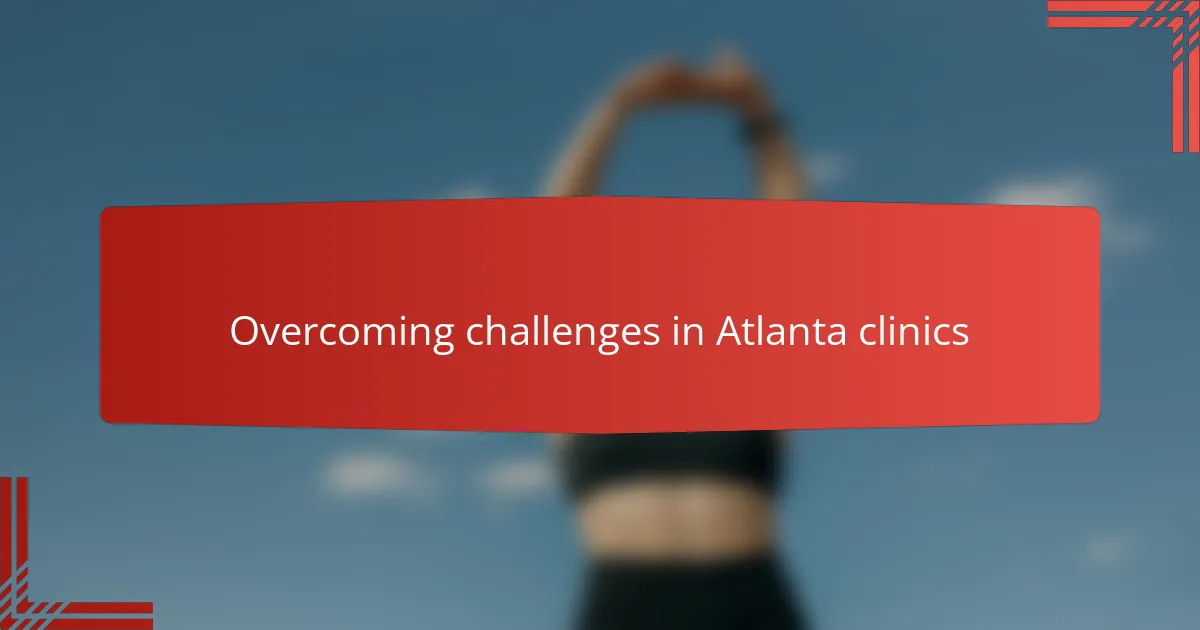
Overcoming challenges in Atlanta clinics
One challenge I faced in Atlanta was navigating diverse community goals within a single clinic. It wasn’t easy balancing competitive athletes’ needs with those looking for casual fun. Have you ever tried meeting everyone’s expectations when they’re so different? I learned that actively listening and adjusting on the fly helped create a space where all participants felt valued.
Weather was another unexpected hurdle. Atlanta’s unpredictable rain once threatened to cancel an entire day, and I had to think quickly. Have you ever scrambled to shift outdoor plans indoors with only hours to go? Finding a nearby gym willing to host us saved the day, and that experience taught me the importance of having backup plans ready.
Finally, building trust wasn’t automatic. Some community members were skeptical about new initiatives, which made outreach tough. I found that showing consistent commitment—showing up regularly, following through on promises—slowly broke down barriers. Isn’t it fascinating how patience and reliability can turn hesitation into genuine enthusiasm?
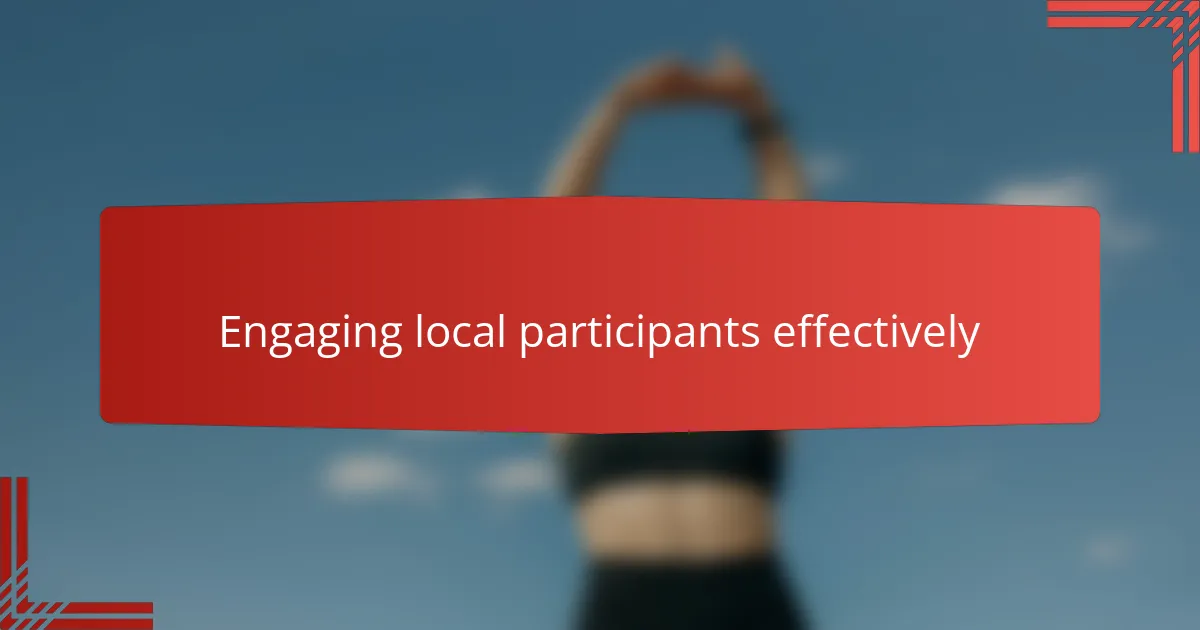
Engaging local participants effectively
Engaging local participants effectively means more than just inviting them to show up—it’s about creating a space where they feel seen and motivated. I recall one clinic where simply asking participants what they hoped to gain transformed their energy completely. Have you noticed how people respond when they feel their voices really matter?
Timing and location also play a crucial role. Scheduling sessions around local routines and choosing easily accessible venues helped me increase attendance significantly. It made me think: how often do we overlook convenience when trying to engage a community?
Lastly, incorporating familiar faces as mentors sparked instant trust and enthusiasm. When a well-known local coach volunteered, participation soared. Doesn’t it highlight how much influence community leaders have in bringing people together?
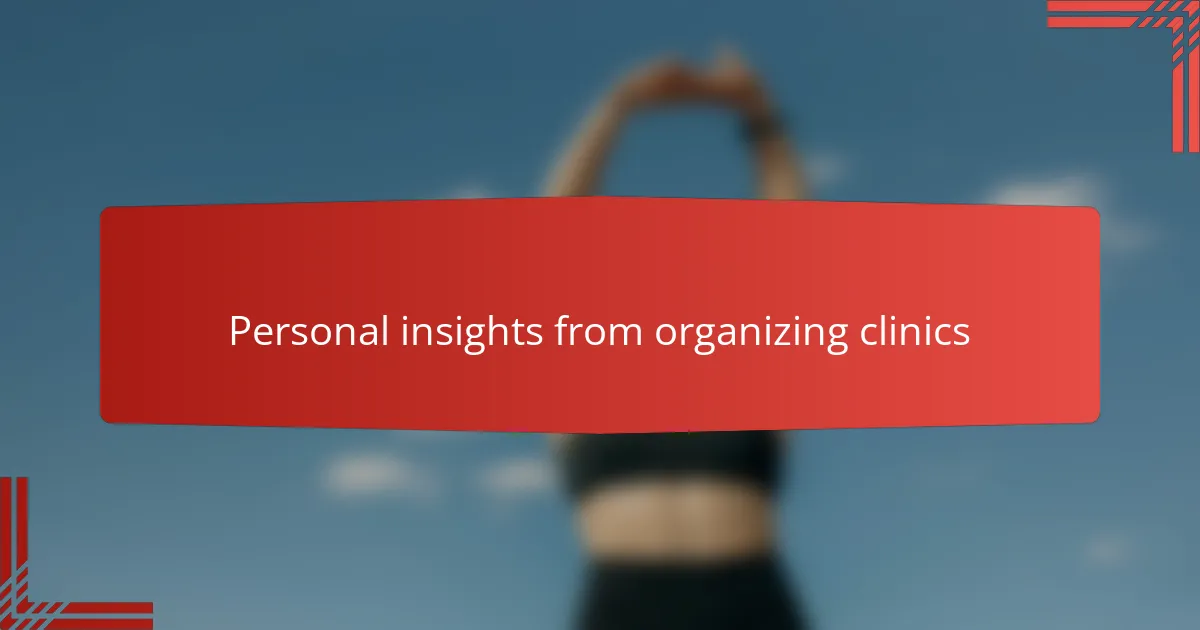
Personal insights from organizing clinics
Organizing sports clinics in Atlanta taught me that flexibility is everything. I remember one session where a sudden change in participant numbers forced me to rethink the entire schedule on the spot. Have you ever had to pivot so quickly? It was stressful, but adapting in real-time made the experience better for everyone involved.
Another insight that stuck with me was how powerful small moments of connection can be. One afternoon, a parent thanked me for creating a space where their shy child finally felt confident enough to join a game. That gratitude reminded me why these clinics are about more than just sports—they’re about building community and nurturing growth.
Also, I realized that patience is key when working with diverse groups. Not everyone warmed up at the same pace, and some needed more encouragement than others. How often do we expect instant results without appreciating the different rhythms people bring? Learning to honor those differences made the clinics more inclusive and meaningful.